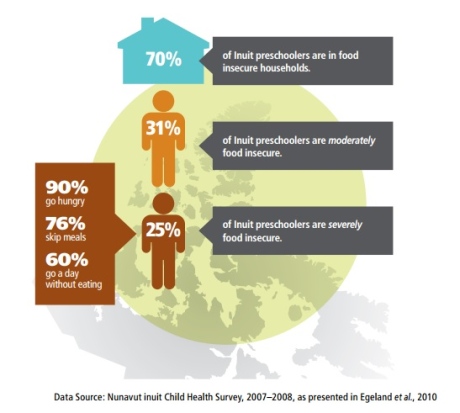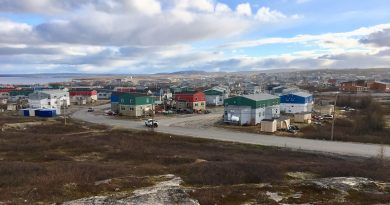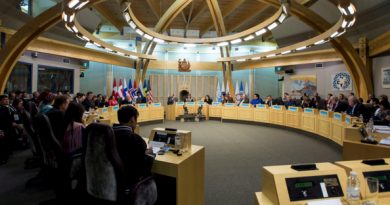Nunavut Inuit go hungry more than any other indigenous group in developed world: report

A new study released Thursday says people in Nunavut have the highest food insecurity rate for any indigenous population in a developed country at 68 per cent.
The report by the Council of Canadian Academies says 35 per cent of Inuit households in Nunavut do not have enough to eat. It also says 76 per cent of Inuit preschoolers skip meals, while 60 per cent have gone a day without eating.
None of this comes as a surprise to Northerners. Alarming data on Inuit child hunger in Nunavut was first published in 2010 following the 2007-2008 Inuit Child Health Survey.
“That’s the same as it’s always been here,” said Rus Blanchet, who works at the Iqaluit soup kitchen. “Food is more expensive here. There’s nothing anyone can do about that. They have to ship it in by plane and boat.”
The report says the average cost of groceries for a family of four in Nunavut is $19,760 per year while almost half of Inuit adults earn less than $20,000 annually.
David Natcher, a professor at the University of Saskatchewan, contributed to the report.
“For the folks up north, I think they’re going to say ‘Yeah, I’m glad you recognize this,'” he said. “For the folks in the South, I hope they’re shocked and I hope they’re embarrassed.”
Natcher says Canada has the resources and capacity to improve food security in the North.
“The conditions in Nunavut in particular are in many ways dire. We have the resources. We have the capacity to address these issues and we can resolve food insecurity for Northern and Inuit communities.”
The World Health Organization defines food security as existing “when all people at all times have access to sufficient, safe, nutritious food to maintain a healthy and active life.”
The report does not make any recommendations. Its authors say they hope their document will help develop priorities for the North and “direct northern food security research to priority areas.”
Related Links:
Canada:Nunavut, Canada to develop food security plan, CBC News
Sweden: Swedish Sami market with climate-smart meat in focus, Radio Sweden
United States: Alaska Natives focus on food security and self-determination at convention, Alaska Dispatch



